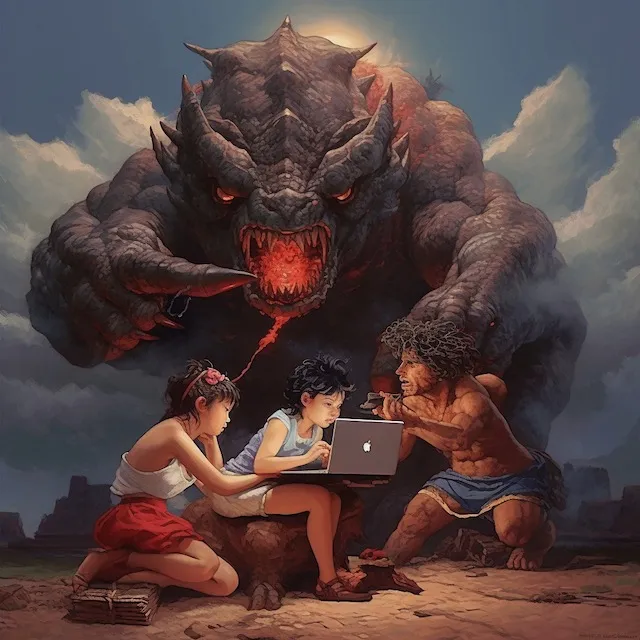The Open-Source Renaissance in AI: A Quest for Knowledge Democracy

In the realm of AI and, more specifically, large language models (LLMs), an intriguing tug-of-war is transpiring. As the technological titans of our age compete to develop ever more sophisticated AI models, a vibrant open-source movement is blossoming in response, seeking to democratize access to powerful AI tools. This ongoing tussle between proprietary AI and the open-source community raises questions about the role of knowledge and power in the unfolding AI revolution.
The excitement around LLMs, such as ChatGPT from OpenAI, is palpable. They hold the potential to transform industries, creating new applications and redefining existing ones. But as tech behemoths like Microsoft and Google race to capture the AI market, a marked shift toward less transparency and openness is emerging. This sentiment is strikingly encapsulated in the leaked internal Google document titled “We have no moat,” which exposed the company’s concerns about the increasing competition from open-source projects and their potential to disrupt the status quo.
Enter the open-source crusaders, a community of researchers and developers determined to foster collaboration and level the playing field. Projects like LLaMA from Meta’s FAIR, Alpaca from Stanford, and Vicuna from UC Berkeley, among others, are developing open-source LLMs to rival their closed-source counterparts. Their noble pursuit of knowledge democracy offers research labs and scientists the opportunity to better understand and experiment with these powerful AI tools.
Take, for example, Hugging Face’s recent announcement of HuggingChat, an open-source alternative to ChatGPT that leverages the Open Assistant model. While the model currently faces licensing limitations, the project embodies the spirit of the open-source movement and its commitment to transparency, inclusivity, and accountability.
As the AI landscape evolves, the open-source movement will undoubtedly continue to drive innovation and broaden access to cutting-edge technology. The potential to create an “Android App Store” equivalent for AI applications underscores the significant value and impact of open-source contributions.
However, challenges lie ahead. The open-source community must navigate the complex web of licensing agreements and restrictions imposed by proprietary models. In addition, striking a balance between openness and safety is crucial, as the proliferation of AI tools raises ethical and security concerns.
The open-source renaissance in AI is a testament to the enduring spirit of human collaboration and the pursuit of knowledge democracy. As this movement unfolds, it will shape the AI landscape, challenge the status quo as highlighted by the leaked Google document, and ultimately determine the extent to which the benefits of AI are shared and democratized across society. The open-source community’s resilience and commitment to shared knowledge may well pave the way for a more equitable and inclusive AI-driven future.